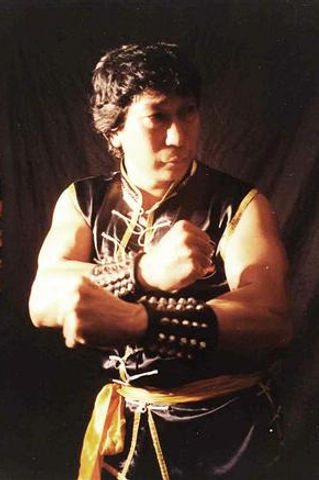CHIU CHI LING's legacy
Grandmaster Chiu Chi-ling was born on January 20, 1943, in Hong Kong, the youngest son of Chiu Kow (also written Chiu Kau) and Chiu Shiu-ying. His parents were both respected masters of Hung Gar Kung Fu and skilled practitioners of traditional Chinese medicine and bone setting (Dit-Da). He began training in Hung Gar, also known as Hung Kuen, at around six years old under the guidance of his father and mother. His family lineage traces directly back to Lam Sai-wing, the famous disciple of Wong Fei-hung, which places Grandmaster Chiu within one of the most respected lines of southern Chinese martial arts. Alongside martial arts, he learned healing methods and bone-setting techniques, becoming well-versed in both the physical and internal aspects of traditional Chinese training.



CHIU CHI LING
As he matured, Chiu Chi-ling took on greater responsibility within his family’s school and was recognized as the successor to the Chiu family Hung Gar system. In 1971, he opened his own school on Nathan Road in Kowloon, Hong Kong. His skill and charisma soon attracted attention from the local community, including actors and athletes, which eventually led him into the Hong Kong film industry. Over time, he became involved in movie production, serving as an actor, stunt performer, and fight choreographer. His reputation as a martial artist and teacher grew internationally as he began to travel around the world, opening branches of his school and conducting seminars to promote Hung Gar on a global scale.
Grandmaster Chiu has appeared in more than seventy films during his career. Some of his most memorable performances include Snake in the Eagle’s Shadow (1978), Duel of the Seven Tigers, Kung Fu Hustle (2004), Journey to the West: Conquering the Demons, The Mermaid, and Adventures of Power. In Kung Fu Hustle, his comedic yet authentic portrayal of a Kung Fu master became one of the film’s highlights. Beyond acting, he also contributed to many films as a martial arts consultant, ensuring that the fight choreography reflected the true essence of Hung Gar. His work in cinema helped bridge traditional Chinese martial arts with international audiences.

Outside of film, Grandmaster Chiu has dedicated his life to teaching and preserving Hung Gar. After Hong Kong’s return to China in 1997, he moved to Alameda, California, where he continues to promote his art. He frequently travels to teach seminars, host workshops, and attend international martial arts events. Every five years, he organizes large gatherings of Hung Gar practitioners from around the world to celebrate their shared lineage. Known for his friendly personality and open-minded approach, Grandmaster Chiu Chi-ling remains one of the most influential figures in traditional Chinese martial arts and cinema, inspiring generations of martial artists and movie fans alike.